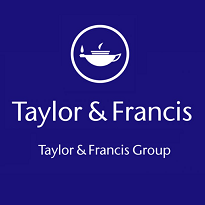| مشخصات مقاله | |
| ترجمه عنوان مقاله | اصلاح دانشگاه به عنوان یک سازمان غیرواقعی: پیامدهای مدیریت استراتژیک و رهبری در آموزش عالی |
| عنوان انگلیسی مقاله | Reframing the university as an emergent organisation: implications for strategic management and leadership in higher education |
| انتشار | مقاله سال ۲۰۱۸ |
| تعداد صفحات مقاله انگلیسی | ۱۷ صفحه |
| هزینه | دانلود مقاله انگلیسی رایگان میباشد. |
| پایگاه داده | نشریه تیلور و فرانسیس |
| مقاله بیس | این مقاله بیس نمیباشد |
| نمایه (index) | scopus – master journals – JCR |
| نوع مقاله | ISI |
| فرمت مقاله انگلیسی | |
| ایمپکت فاکتور(IF) |
۰٫۸۱۴ در سال ۲۰۱۷ |
| شاخص H_index | ۳۲ در سال ۲۰۱۸ |
| شاخص SJR | ۰٫۷۵ در سال ۲۰۱۸ |
| رشته های مرتبط | مدیریت و علوم تربیتی |
| گرایش های مرتبط | مدیریت آموزشی و مدیریت استراتژیک |
| نوع ارائه مقاله |
ژورنال |
| مجله / کنفرانس | مجله سیاست و مدیریت آموزش عالی – Journal of Higher Education Policy and Management |
| دانشگاه | Higher Education Research Centre – Dublin City University – Ireland |
| کلمات کلیدی | HEI؛ موسسه عالی رتبه؛ منطقی؛ ظهور؛ پیچیدگی؛ استراتژی؛ رهبری؛ تغییر |
| کلمات کلیدی انگلیسی | HEI; higher level institution; rational; emergent; complexity; strategy; leadership; change |
| شناسه دیجیتال – doi |
https://doi.org/10.1080/1360080X.2018.1478608 |
| کد محصول | E9461 |
| وضعیت ترجمه مقاله | ترجمه آماده این مقاله موجود نمیباشد. میتوانید از طریق دکمه پایین سفارش دهید. |
| دانلود رایگان مقاله | دانلود رایگان مقاله انگلیسی |
| سفارش ترجمه این مقاله | سفارش ترجمه این مقاله |
| فهرست مطالب مقاله: |
| Abstract Introduction Alternative paradigms of organisation of higher education Including the emergent paradigm in the organisation of higher education Conclusion References |
| بخشی از متن مقاله: |
| ABSTRACT
For the most part, the organisational forms that are currently being adopted by higher education institutions are grounded in the traditional corporate models of organisation that take a rational approach to organisational change management. Underlying this account is an assumption of organisational autonomy and the capacity of designated leaders to direct such change processes. However, a case is now being made for the consideration of alternative organisational theories or models that offer a different perception on the sources and patterns of organisational change in higher education. These theories perceive organisations more as emergent entities in which change is continuous, often unpredictable and arising mainly from local interactions. The paper surveys the implications that acceptance of the alternative paradigm might have for strategising and change leadership in higher education institutions. It suggests that the accommodation of these alterative paradigms of institutional development in higher education may itself be an emergent process. Introduction Recent decades have seen higher education being steered towards a more rational and accountable form of governance, a process described by Krücken and Meier (2006) as turning the university into an organisational actor. Institutional theorists explain the transition of public and professional bodies like higher education institutions (HEIs) towards this organisational model in the context of a general rational transformation in world society (Ramirez, 2012). In this context, HEIs are increasingly rationalised as sovereign organisational actors that are expected to commit themselves to the goals of greater accessibility and social and economic relevance and are actively encouraged in this direction by national and transnational policy bodies. As an organisational actor, the institution possesses a degree of sovereignty and rationality that was absent in the state centred or academic led institutions of the past. Brunsson & Sahlin-Anderson (2000) describe the essential characteristics of this modern organisational form as having a distinct identity and a rational approach to directing organisational change and resource management so as to better align the institution with societal demands. The approach assumes a clear statement of institutional goals and strategy and a structured leadership with sufficient autonomy and capacity to deliver such change. The adoption of this rational approach to the organisation of higher education has not been without difficulty or dissent. A case is now emerging for the consideration of alternative theorisations of higher education based on a different paradigm of what constitutes an organisation and how organisational change occurs. Scholars have pointed to the limitations of applying an organisational form that may not correspond to the realities of life in higher education: its traditions or national context, its internal complexity and unique form of governance, the complexity of its environment and the open-ended nature of its core activities of teaching and research (Musselin, 2006; Whitley, 2008). Others have questioned whether there is substantial evidence linking the adoption of this organisational form and institutional performance (Enders, De Boer, & Weyer, 2013; Stacey, 2011). A critical literature suggests the main purpose of this rational approach is as a means of facilitating managerialism (Deem & Brehony, 2005), academic capitalism (Slaughter & Rhoades, 2004) or the marketisation of higher education with consequent negative effects on academic well-being and the quality of teaching and research (Franco-Santos, Nalick, Rivera-Torres, & Gomez-Mejia, 2017; Molesworth, Scullion, & Nixon, 2010). |
